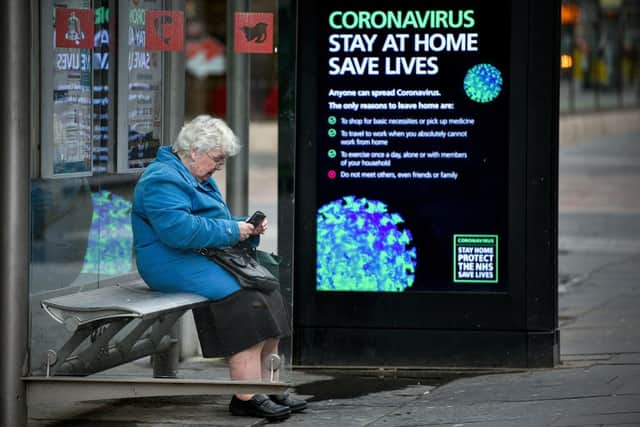UK's first coronavirus contact tracing group in Sheffield reveals its findings
and live on Freeview channel 276
Retired doctors in the city launched the Community Contact Tracers group last month amid concerns over how the UK had stopped attempting to track those with the disease and everyone they had been in contact with to prevent it spreading.
They have revealed their initial findings as the Government prepares to launch its own nationwide test-and-trace system, for which an army of 25,000 contact tracers has already been recruited.
Advertisement
Hide AdAdvertisement
Hide Ad

Although the Sheffield group is operating on a much smaller scale, its members believe their experiences could offer valuable lessons for the national scheme.
Co-founder Dr Mike Tomson described how the group had recruited and trained six volunteers and, working with GPs, identified 13 people with coronavirus symptoms – referred to as ‘index cases’.
Of those, one was deemed inappropriate, another was dropped due to 'racist abuse’ and a third withdrew without giving a reason.
For the 10 remaining people, 58 contacts were identified and 19 of those were given advice about self-isolation and offered support via phone or email until 14 days after their contact with the index case.
Advertisement
Hide AdAdvertisement
Hide AdOne was discovered to be ill and was enrolled as a new index case, whose own contacts were traced.
Of the remaining 39 contacts, the index cases were either unable or unwilling to give their names and details.
All but 10 worked for either the NHS, a care home or a home care provider, and the group contacted their employers to offer advice regarding self-isolation but said that while some offered to pass on information others displayed an ‘apparent inability or unwillingness to engage’.
Dr Tomson said: “It’s interesting so many of the contacts worked in the health and care sector.
Advertisement
Hide AdAdvertisement
Hide Ad“We understand a lot of people working in that sector are in jobs which aren’t the highest paid and don’t have the best terms and conditions.
“I would suspect that quite a lot of them felt under threat that they should be encouraged to take time off when their employer didn’t want them to, which is understandable because care organisations also have massive pressures.”
Another of the group’s founders, Dr Bing Jones, said its findings suggested that ‘health and care workers are unwittingly acting as the vectors of this’.
Dr Tomson said the study showed the challenges of getting people and their employers to engage, with letter drops and numerous phone calls required in some instances.
Advertisement
Hide AdAdvertisement
Hide AdBut he said it proved too how volunteers could be trained and supported online to perform effective contact tracing, and how the Government could make use of community groups to help with what is a ‘complex and time-consuming process’.
Dr Tomson also questioned how effective the Government’s app would be at reaching the most vulnerable members of society, like older people and those in the poorest communities.
The group, which has recently trained 25 more volunteers and plans to continue its work, says multiple community organisations have sprung up elsewhere, following its lead.
For more about the project, visit www.communitycontacttracers.com.